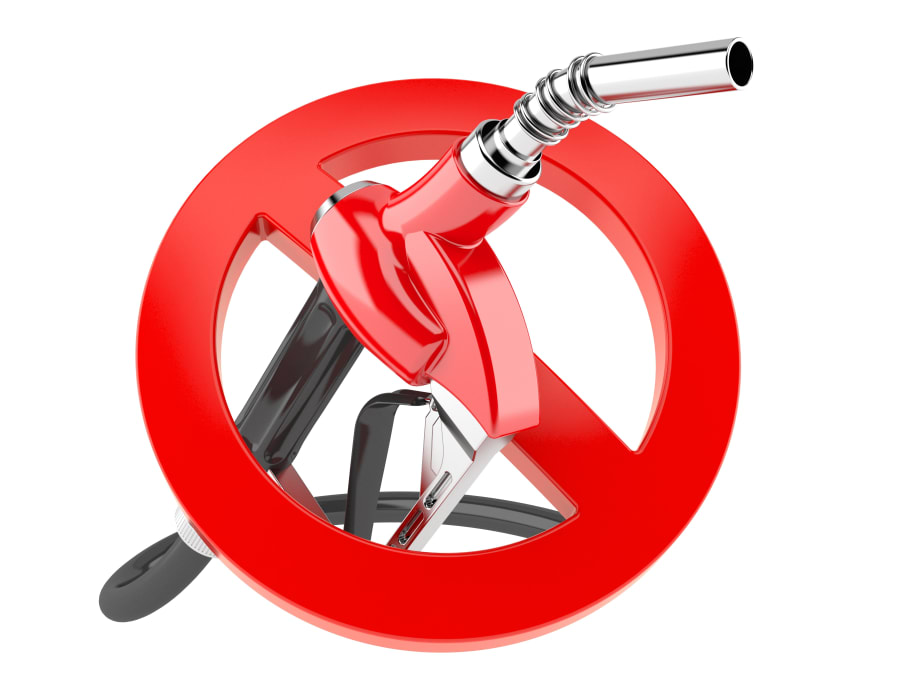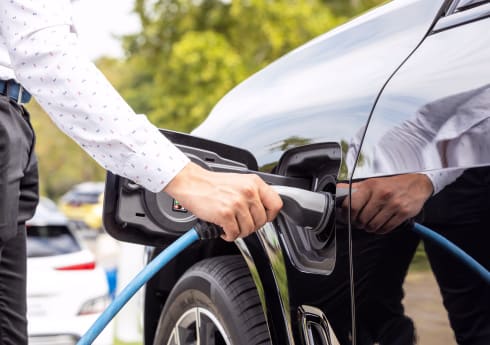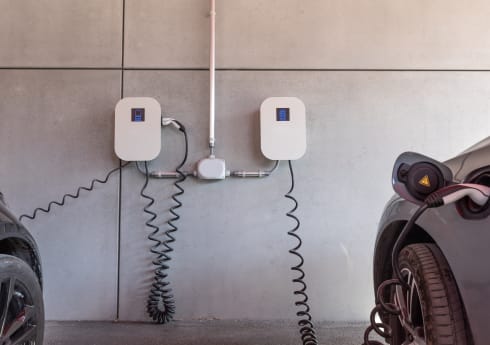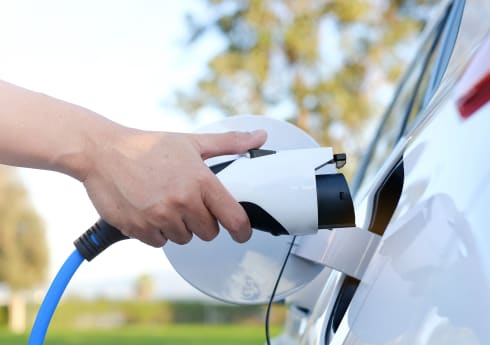Petrol and Diesel Car Sale Ban: Are People Ready to Join the Electric Revolution?
In case you haven’t heard of the petrol and diesel ban, it’s the government’s plan to end the sale of all new petrol and diesel cars by 2030. But are people really happy with this upcoming ban on petrol and diesel cars in the UK?
We launched a study to find out what people are thinking and how they’re reacting – check out the eye-opening results below. The question is: Are you prepared to join the electric revolution in 2030?

When will petrol and diesel cars be banned?
It’s part of the UK government’s 10-point ‘green industrial revolution’. There’s a plan to end the sale of new petrol and diesel vehicles by 2030. Also known as the ‘petrol diesel ban’, it will definitely shake up the motoring industry. But as you’d expect, motorists have many questions and concerns.
The petrol and diesel ban is happening to protect the environment and speed up the move towards zero-emissions.
And our survey results show exactly what motorists think of the radical change.
iCompario survey results on the ban of petrol and diesel cars in the UK
We asked 2,000 people in the UK what they think about the government’s plan to end the sale of new petrol and diesel vehicles by 2030.
We divided the survey into three questions and this is what we found out.
Do you agree with the plan to end the sale of petrol and diesel vehicles by 2030?
We asked this question to better understand how people are feeling towards the upcoming petrol and diesel car sale ban.
These are our key findings:
- 64% (two thirds) said they disagree with the ban on petrol and diesel cars in the UK by 2030.
- Men and women alike are against the ban, our study showed there’s no difference based on gender.
- Three quarters of 25–65-year-olds oppose the 2030 petrol car ban.
While there are still 36% of people in favour of the petrol and diesel ban, it could be argued that the plan is quite unpopular among the larger population in the UK, regardless of age.
Do you think you should still be able to purchase petrol and diesel vehicles beyond 2030?
With the government’s plan to end the sale of new petrol and diesel vehicles by 2030, this question concerns a lot of people.
The results look like this:
- 66% think they should still be able to purchase petrol and diesel vehicles beyond 2030, while 34% consider the 2030 petrol ban in the UK means the end of all sales of petrol and diesel cars whatsoever.
- Women are more confident than men they’ll still be able to buy petrol and diesel cars beyond 2030.
- 18-24-year-olds are reluctant they’ll still be able to buy conventionally fuelled vehicles after 2030, while people who are 65+ years old think the sale of petrol and diesel cars will continue beyond 2030.
- People in Wales feel the most strongly about being able to buy after 2030, with 77% wanting to still be able to buy after 2030.
It’s important to note the petrol and diesel ban will only affect the sale of new vehicles, so you’ll still be able to buy and sell used conventionally fuelled cars after 2030. But you should expect a falling demand and prices to go down a lot.
Do you think you will be able to afford to switch from petrol or diesel to electric by 2030?
The cost around switching to EV could be a high cause of concern for those who rely on their vehicles on a day-to-day basis. Especially with the all-time high inflation rate, motorists are getting worried they won’t afford the switch to electric vehicles.
This is what our study revealed:
- 75% (three quarters) of people don’t believe they can afford to make the switch before 2030.
- More women than men believe they won’t be able to afford the switch.
- More than eight in ten over 55-year-olds feel they can’t afford to switch.
- On the other side, 43% of 18-24-year-olds feel most confident about being able to afford the change.
On this matter, the numbers based on region look like this:
- 83% of Welsh motorists are highly fearful of not being able to afford the switch.
- Over 80% of people in Scotland believe they’ll be unable to afford the switch to EV.
- Nearly 75% of people living in England doubt they can make the change to electric vehicles.
What will the 2030 petrol ban mean for the existing combustion engine vehicles on Britain’s roads?
The 2030 petrol car ban means you won’t be able to purchase a new petrol or diesel vehicle after this date. But you’ll still be able, lawfully, to buy and sell used petrol or diesel vehicles.
If you already drive a petrol or diesel vehicle, you can continue to drive it on Britain’s roads just like you did prior to this date.
It is expected that, following the ban, the value of petrol and diesel vehicles is going to decline. Also, vehicle manufacturers could be offering great deals on their existing combustion engine vehicles in hope to clear stock.
Do any other governments plan a petrol and diesel ban?

Yes, with other countries being even more ambitious than the UK in ending the sale of new petrol and diesel vehicles.
Norway, for example, has set its deadline to 2025. It would make it the first country to end the sale of fossil fuel-powered cars. While it may seem highly ambitious, it should be noted that as of 2018, EVs make up approximately 60% of new car sales in Norway.
Following in Norway’s footsteps is the Netherlands, who is looking to phase out the sale of any non-electric vehicles by 2030. However, plans are yet to be officially confirmed by the Dutch government.
Ireland also aims for a 2030 petrol ban, while France has 2040 in mind.
There’s a list of countries planning to end the sale of new conventionally fuelled vehicles:
| Country | Date to enforce petrol and diesel ban |
|
Norway |
2025 |
|
England |
2030 |
|
Ireland |
2030 |
|
Scotland |
2032 |
|
Netherlands |
2030 |
|
Denmark |
2030 |
|
Sweden |
2030 |
|
Spain |
2040 |
|
France |
2040 |
How’s the UK government supporting the switch to electric?
The government had in place a £300 million plug-in car grant scheme to help households of all incomes make the move from petrol and diesel to electric. That helped as the number of electric cars rose from less than 1,000 in 2011 to 100,000 in the first five months of 2022. To date, one in six new vehicles sold in the UK is fully electric.
However, the UK government decided to pull the plug on the remaining electric car subsidies, in order to free up funds to support the expansion of the charging network.
At the moment, there are grant schemes available for electric vehicle charging infrastructure.
Using the EV charge point grant, you can get up to 75% of the cost of installing EV smart charge points at domestic properties across the UK.
Businesses can also benefit from grants using the UK workplace charging scheme.
How can you get ready for the transition to EV?
This upcoming ‘green revolution’ will have an impact on everyone, but especially on businesses highly relying on their commercial vehicles.
If you haven’t yet, it’s time to consider an EV solution. We recognise pure-electric vehicles are more expensive to buy. That’s because they cost more to be manufactured in the first place. But the cost to charge an electric car is much lower than the cost of fuel and EVs can work out to be in fact cheaper to run and maintain.
Luckily, there are solutions that will help ease the transition without you needing to break the bank. Consider hiring an EV for your business to step into the switch ready and at a lower cost. There are many deals available on the market and you can be certain you’ll find one that’s right for you.
Many fuel cards providers take EV charging into account now, offering fuel cards to pay with at charging points. Electric fuel cards will soon be an essential method to save money for your business.
If you need advice on electric vehicle hire, electric fuel cards for your business or even telematics solutions and business insurance for your fleet or company vehicles, get in touch with us and we’ll be happy to help you find the best solutions to fit your business needs.



